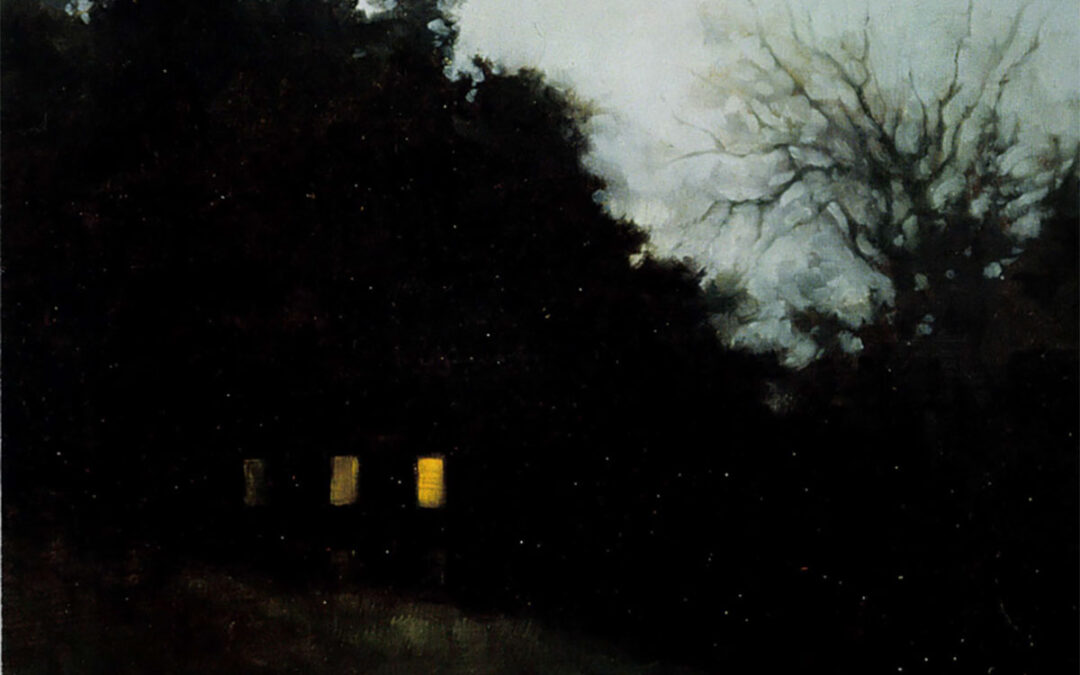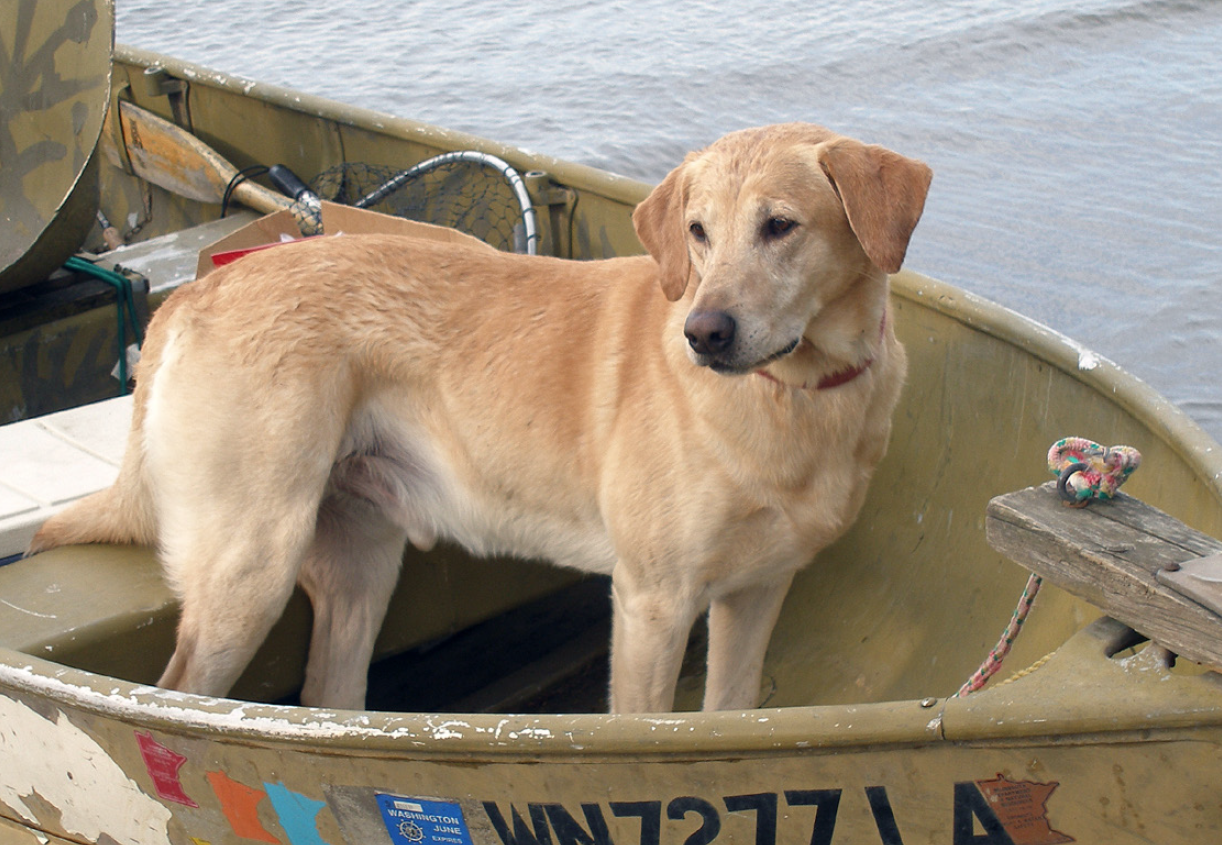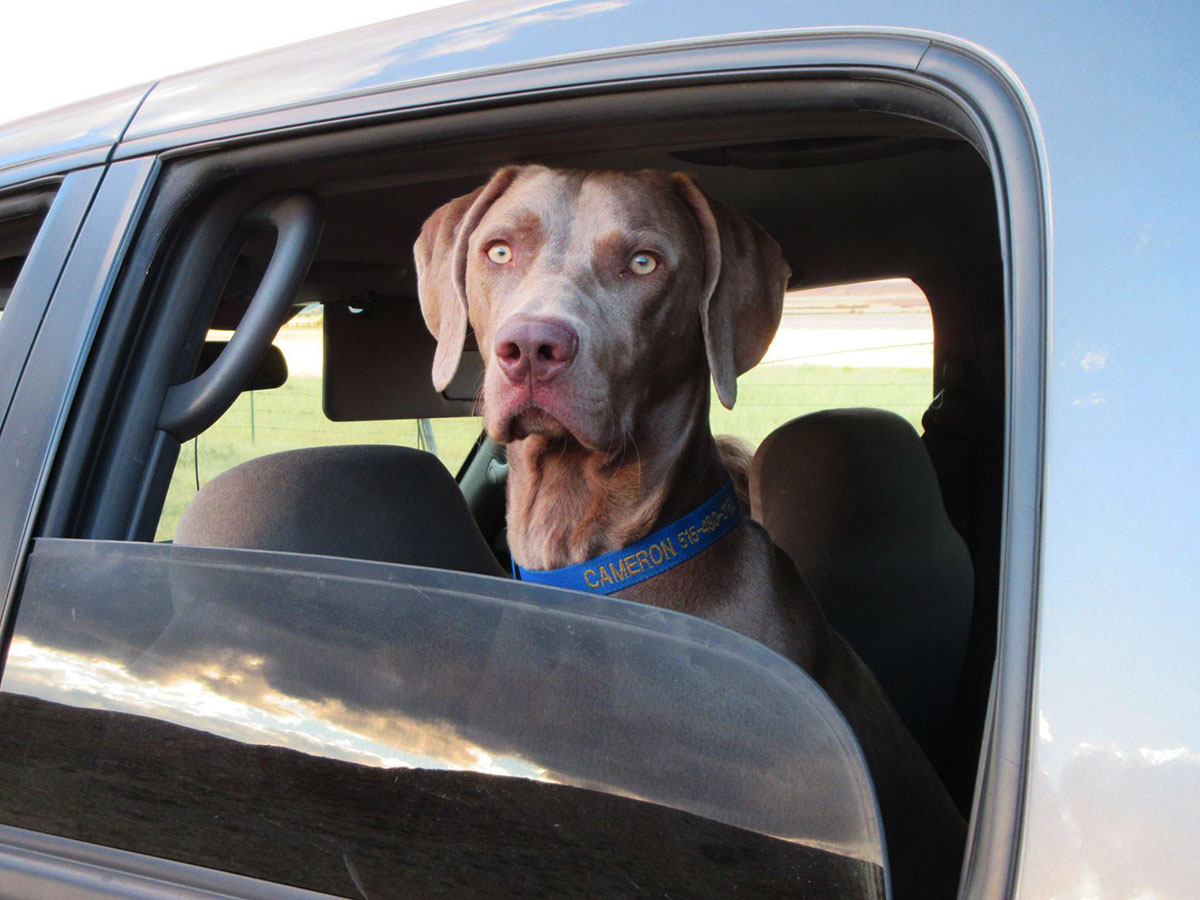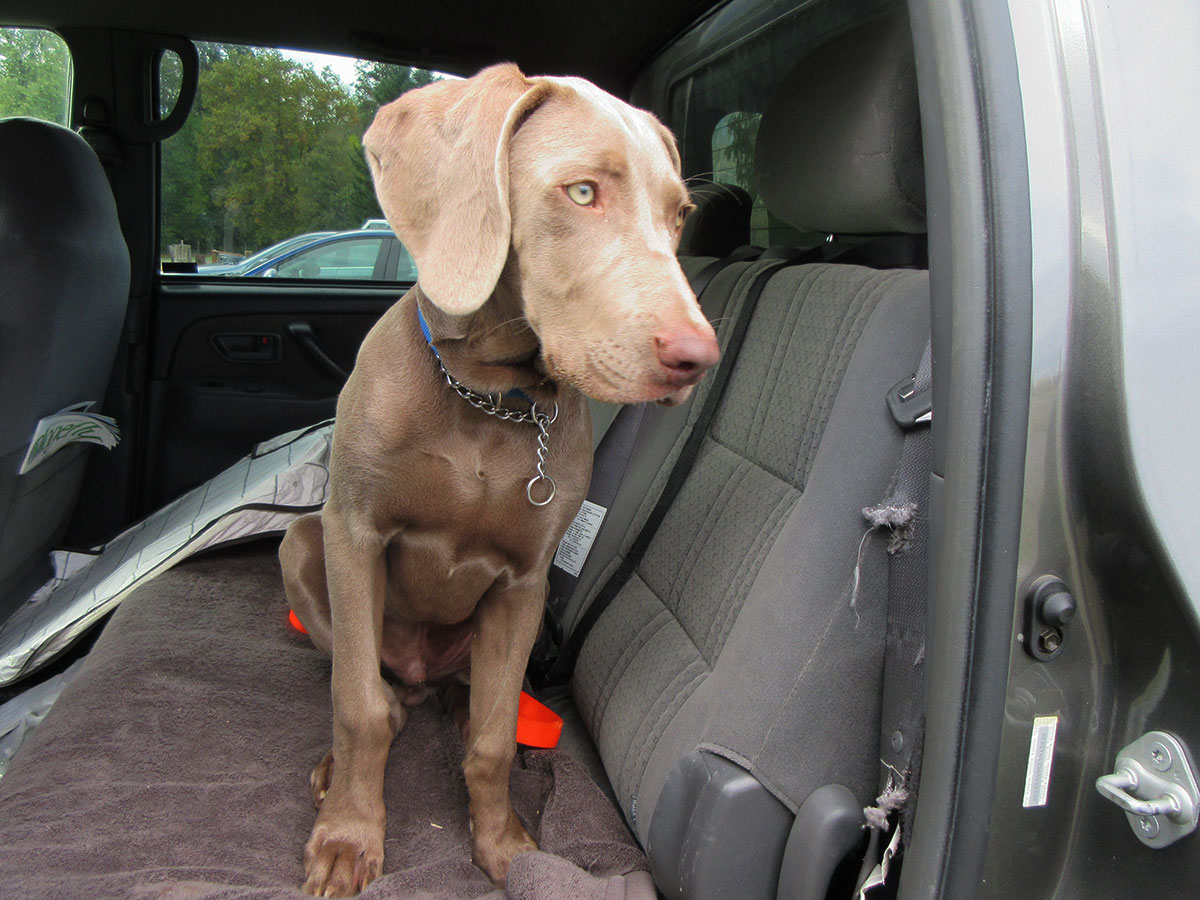“That’s a very sad story,” said Austin. “It gets worse,” said Ray.
Passing through the ranch gate and driving down the tree-lined gravel lane toward the log house seemed like going back in time. The little English setter, asleep in the passenger seat for the past hour, suddenly came to full alert and peered through the windshield. Despite a forecast calling for clear skies, the house at the end of the lane lay shrouded in fog. That’s strange, thought Austin. No pick-up trucks or other farm vehicles cluttered the neatly kept yard, and no ranch dogs raced out to bark a greeting.
“Probably no one home,” he said to Snow, who sat trembling and whining softly. Austin reached over to pat her on the head.
“What’s the matter, girl? It’s okay. I’ll be right back.”
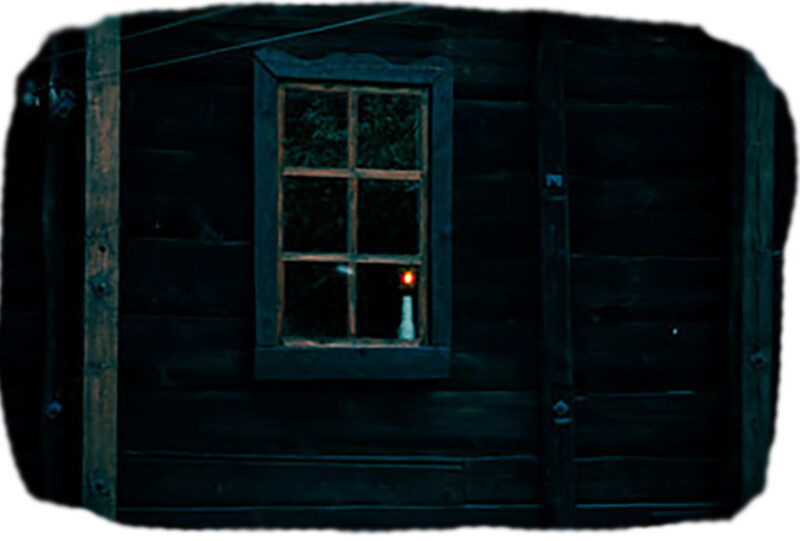 Exiting the truck, he walked past the lilac bushes flanking the flagstone path and knocked on the door, softly at first and then a bit louder. Inside he heard someone stir, and a moment later the door opened. A pretty woman with auburn hair pulled back in a ponytail wiped her hands on her apron.
Exiting the truck, he walked past the lilac bushes flanking the flagstone path and knocked on the door, softly at first and then a bit louder. Inside he heard someone stir, and a moment later the door opened. A pretty woman with auburn hair pulled back in a ponytail wiped her hands on her apron.
“Good morning,” said Austin. “I’m bird hunting and I’m wondering if I could give the big ridge south of your house a try.”
The woman’s kind, expressive eyes revealed a hint of sadness. “Well, you need to talk to my husband about that, but he’s in town this morning.”
From the kitchen a young voice called, “Mama, I’m done stirring, what should I do next?”
“Just a minute, sweetie, I’ll be right there.”
“Sounds like you have your hands full,” said Austin. ”I’ll stop back later when your husband’s home if that’s okay.”
The woman smiled. “My daughter and I are baking cookies. Why don’t you go ahead and hunt. I don’t think he’ll mind, as long as you park your truck on the county road and walk in.”
“That’s no problem. I have a dog and walking is the only way we hunt. Thanks very much.”
“Oh, one more thing. There’ve been a few bears around. There are lots of chokecherries this year, so keep your eyes peeled.”
Back in the truck, Austin scratched Snow behind a silky ear. “We’re in business, girl.”
Leaving the dense fog behind, he drove toward the main road, which lay bathed in early morning sunlight under an overarching blue sky. Her uneasiness abated, Snow leaned across the center console to lick her master’s hand.
After parking the truck in the shade of a cottonwood, Austin retrieved his 20-gauge AyA No. 2 from its case in the extended cab and pulled on a wool shirt to ward off the morning chill. Putting on his hunting vest, he slipped a water bottle in the back and checked the pockets to make sure he had a good supply of shells. Then, he let Snow out of the cab and buckled the Swiss bell on her collar. Opening the double, he dropped two No. 6s in the chambers. Maybe a bit of overkill for Hungarian partridge, according to what he’d read, but good medicine for sharptails or blue grouse.
To the wildly prancing Snow, he said, “Let’s find some birds.”
Skirting the edge of a brushy coulee, they worked their way up the slope. Sunshine washed across the hillside, warming Austin’s back. The soft October light cast a golden glow across the foothills, and the air carried the sweet, damp smell of decaying leaves. The breeze blowing down from the Rocky Mountain front, along with moisture from the melting frost, promised good scenting conditions for Snow.
The setter slowed her gait near the top of the draw where it broke out onto a grassy flat, hesitated, then moved forward again, bell tinkling. She crept ahead a few more yards and stopped, as if she’d bumped against an invisible barrier. She lifted a paw and stared straight ahead.
Austin hurried forward, gun ready. “Don’t dally,” the bearded man at the taxidermy shop in town had counseled. “Huns are restless, contrary critters — hard for a dog to pin and not inclined to wait for a hunter to walk up to ’em.”
The covey flushed from the tawny grass 20 yards ahead, a chirping cluster of grayish missiles swinging right, hurtling toward the rim of the coulee. Austin swung on the nearest bird and pulled the front trigger. The bird pitched downward, its momentum carrying it over the ridge and out of Sight.
Snow disappeared, and he could hear her bell somewhere below. By the time he reached a place where he could see down into the draw, she was on her way back to him with the bird.
“Good girl!” he said, taking the Hun and patting her on the head. It had been a lovely point and an even better retrieve. He stood for a moment, smoothing the bird’s feathers and admiring its rusty tail and cinnamon facemask.
Austin had no idea where the covey had flown after they’d disappeared below the shoulder of the hill, so it seemed futile to try finding them again. Instead , he continued down the ridge to the next draw, giving Snow the breeze in her face.
As they neared a thicket of chokecherry trees, she stiffened into another point, her coat shining white in the sunlight. Three sharptails boiled from the bushes, clucking in protest, when Austin moved in. The lead grouse ignored the hissing shot charge racing past its tail but crumpled at the second shot.
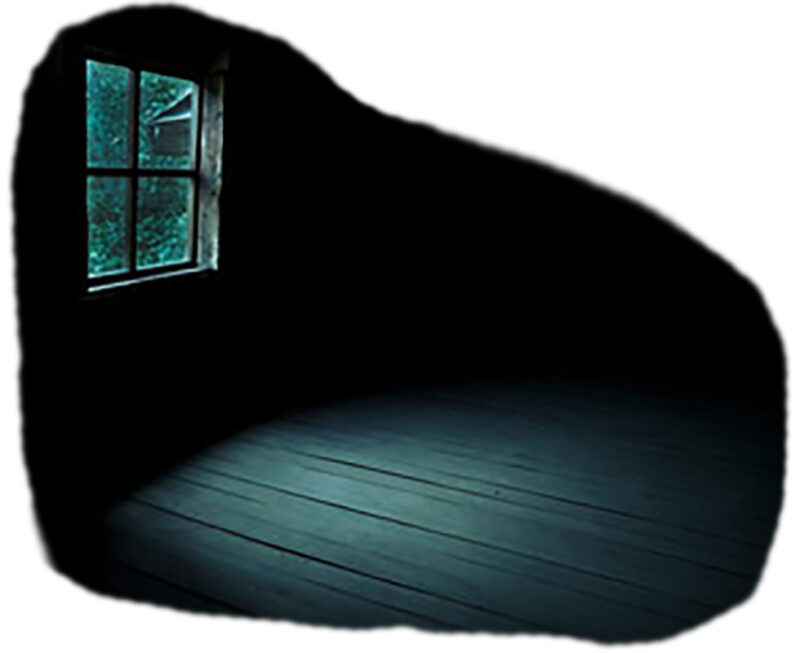 As a few feathers sifted to earth, branches cracked inside the thicket. Expecting a mule deer, or perhaps a coyote, to bounce from the far side, Austin stared in astonishment as a cinnamon-colored head appeared above the tall chokecherry bushes not 40 feet away. The big bear stood on its hind legs, head swaying, muzzle flecked purple with chokecherry juice, nostrils testing the air, its small eyes darting from Austin to Snow.
As a few feathers sifted to earth, branches cracked inside the thicket. Expecting a mule deer, or perhaps a coyote, to bounce from the far side, Austin stared in astonishment as a cinnamon-colored head appeared above the tall chokecherry bushes not 40 feet away. The big bear stood on its hind legs, head swaying, muzzle flecked purple with chokecherry juice, nostrils testing the air, its small eyes darting from Austin to Snow.
Her hackles raised, Snow issued a low growl and pressed herself against Austin’s leg.
For a few seconds, options churned through Austin’s mind like autumn leaves swirling in a whirlwind -turn and run, drop to the ground, open the empty gun and reload — but before he could act, the head disappeared. After a long, agonizing moment of silence, while Austin groped in his pockets for shells, the bear walked nonchalantly from the thicket and ambled away down the slope.
Weak-kneed and shaking, Austin gulped in air to calm his racing heart. Like a man who’d been shot at in battle and missed, he felt a mixture of exhilaration and gratitude. But a nagging question remained: The bear had seemed oddly indifferent, even benevolent, toward him. Maybe I’m imagining things, thought Austin.
With the scent of the bear strong in her nostrils, Snow, now walking on eggs, found the dead grouse and brought it in, her dark eyes large as saucers. Austin took the Hun from his vest and laid it on the ground next to the sharptail. Half again as big as the Hun, the sharptail had brown chevrons marching down its breast, receding into the snow-white feathers of its belly. Feathers covered the grouse’s legs right down to its toes. True to its name, the grouse’s tail tapered to a point, a striking contrast to the fanned-tailed ruffed grouse Austin hunted back in New England.
The sharptails had sailed down the ravine, curving left along the contour of the hill and out of Sight. For lack of a better idea, Austin walked in the direction they’d flown. Twenty minutes later, Snow’s bell fell silent near the upper end of a patch of snowberry. Austin struggled up the slope, heart hammering in his rib cage. Just as he caught a glimpse of Snow’s white coat 30 yards above him, a covey of Huns erupted between them. Austin picked a left-quartering bird, swung through and dropped it into the bushes.
A few minutes later, Snow appeared beside him with the dead Hun. Austin took it from her and put it in his vest. Then he hiked toward the top of the ridge, stopping several times to rest and admire the rugged panorama around him. To the east the dun-colored prairie marched toward the horizon; to the west, the mountains, brooding and eternal, reached upward into a luminous sky. Far below, the ranch house, still nestled in its envelope of fog, remained strangely somber and serene. Then he thought of the woman’s warning about bears and the sadness in her eyes, he shivered involuntarily.
At the highest point, Austin sat down on a limestone ledge, called Snow to him, and poured her a drink in the collapsible dish he always carried in his vest. Somewhere above, the eerie, rasping calls of migrating sandhill cranes broke the silence. At first he couldn’t see them, but as he kept looking they came into view, tiny dots in the sky over the mountains, sounding closer than they were. Snow cocked her ears at the strange noise and looked at him.
“Cranes,” he said softly, “carrying the souls of the dead to heaven — if you believe the legend.” He closed his eyes, held Snow close, and listened until the haunting cries faded away to the south.
When Austin returned to the truck a few hours later, enjoying the heft of two more sharptails and another Hun in his vest, he found a note tucked under the windshield wiper. It read, “We allow hunting, but only if you ask. We live in the white house a mile south on this road. Please stop. R. Cronin.” Perplexed, Austin put away his gun and gear and whistled Snow into the truck.
Ray Cronin put down his hammer when he heard tires crunching in the gravel drive outside his workshop and looked out the window. He saw a gray Toyota Tundra with New Hampshire plates — the one he’d left the note on an hour earlier — roll to a stop, with a snow-white dog staring through the windshield. The lean man walking toward the workshop door wore a hunter-orange ball cap, a red-and-black checked shirt and nylon-faced brush pants.
Ray Cronin opened the door and said, “Come on in, Mr. Trespasser.”
“I guess I’m in trouble, but I’m not sure why,” Austin countered. “I asked permission at the ranch down the road, and the lady there said it would be okay if I walked up the ridge.”
Ray Cronin’s rheumy blue eyes narrowed. He pushed his sweat-stained Stetson back on his head and stroked his gray mustache with a leathery forefinger.
“Son, there ain’t no need to get yourself in deeper. I’m not fixing to call the game warden. I just wanted to let you know folks treat each other with respect in these parts, and that includes asking permission to hunt. The Daggett house, where you say you asked permission, burned to the ground 30 years ago, and I bought the place a year later. There’s nothing down there now but an old foundation.”
Austin, feeling like he’d been punched in the solar plexus, looked at him in disbelief. The rancher motioned toward a wooden chair speckled with dried paint. “Son, you’re as white as that setter in your truck. You’d better sit a spell.”
He lifted the birdhouse he’d been building off his workbench and blew sawdust from the roof.
“Never thought I’d be makin’ birdhouses in my oId age, but my wife likes bluebirds. Hell, I never thought I’d even get to see my old age. Figured some cranky griz would chew me up on an elk hunt in the Bob, or more likely I’d get throwed and stepped on by a rank horse. There’s plenty of trouble in these mountains.”
Austin slumped into the chair and tried to gather his thoughts. “Did you know the Daggetts well?”
“Wes Daggett and I grew up together, raised our share of hell together, chased the rodeo circuit together. Of course, when Wes married Libby, things changed. They had two kids, first a girl and a boy a few years later. Jeanie and I got hitched not long after.”
Setting the birdhouse back on the bench, he gazed out the window. “Some folks are just star-crossed, I guess. The Daggett house caught fire late one night in 1980, a week before Christmas. I was in the volunteer fire department, and we got there as quick as we could, but not quick enough. Libby and her daughter, Emma, died in the fire. Wes had gone to Great Falls that day with the little boy to Christmas shop and run errands. While they were there, a storm blew in — a regular old-time blizzard. It snowed a foot and a half, so they stayed the night with friends. That was the night the house burned.”
“That’s a very sad story,” said Austin.
“It gets worse. After the funeral, Wes sent the boy back East to live with Libby’s sister, just temporarily, he said, until he could get the house rebuilt. But Wes took it awfully hard. He sought comfort in the whiskey bottle and let the ranch go to hell. He blamed himself for not driving home that night through the snow — figured if he’d been there, maybe he could have got them out in time. He just couldn’t seem to get past it. A few months later, he shot himself.”
Austin looked down at his boots, then up at the old rancher, and finally spoke. ”I’m sorry about what happened to your friends.”
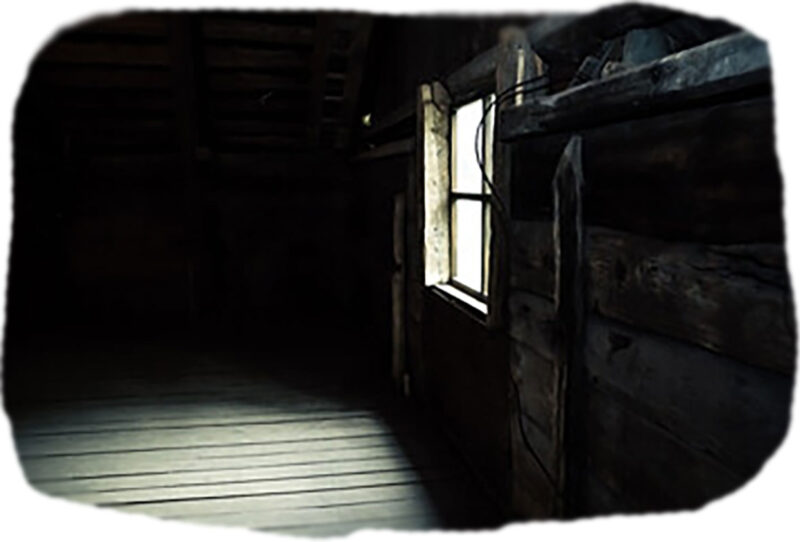 For a moment, their eyes locked. “This can be hard country,” said Cronin. “It’s got its beauty, but it can be hard. Once in a while I ride my horse down to the Daggett place and just sit there. Sometimes I swear I can hear voices out in the cottonwood grove, like a woman and a child talking. My wife says it’s the wind. She thinks them bucking horses tossed me on my head one too many times back in the day.”
For a moment, their eyes locked. “This can be hard country,” said Cronin. “It’s got its beauty, but it can be hard. Once in a while I ride my horse down to the Daggett place and just sit there. Sometimes I swear I can hear voices out in the cottonwood grove, like a woman and a child talking. My wife says it’s the wind. She thinks them bucking horses tossed me on my head one too many times back in the day.”
Austin shifted uneasily in his chair. “I don’t think it’s the wind, Mr. Cronin.”
The rancher looked out the window, past the foothills, up at the mountains beyond. “I never did hear what become of the Daggetts’ little boy. I believe his name was Austin.”
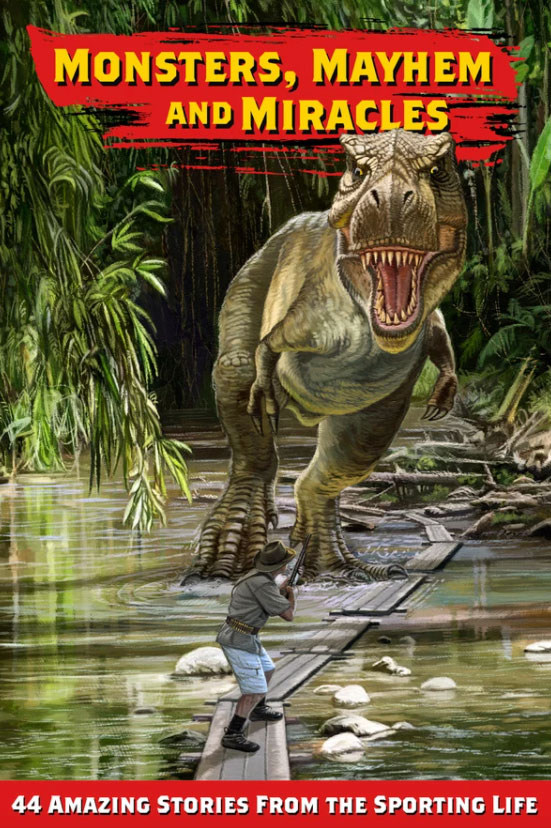 Truly a first in the world of outdoor publishing, Monsters, Mayhem and Miracles is a one-of-a-kind collection of unforgettable tales from the sporting world. Its 44 stories range from harrowing encounters with deadly predators to astonishing tales involving spirits, ghosts and even the devil himself. Buy Now
Truly a first in the world of outdoor publishing, Monsters, Mayhem and Miracles is a one-of-a-kind collection of unforgettable tales from the sporting world. Its 44 stories range from harrowing encounters with deadly predators to astonishing tales involving spirits, ghosts and even the devil himself. Buy Now

